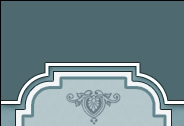|
Portraits of the kings and emperors of
France
In this site,
my goal has been to gather a great number of portraits of French kings and emperors, and
of their closest relatives.
There are in
fact, very few Internet sites containing these portraits: the information on
this topic is very sparse for the most part. Besides, the documents are often of
low quality, and the legends sometimes very incomplete. I have selected, as much as possible, works of
high quality, of large format, and the legends give the name of the artist, the
title of the work, the dates that are useful, and the location of the work
(certain legends are left incomplete because of lack of
information).
I started with portraits
of the kings and emperors (official portraits and more intimate), then with
those of their spouses, their children, mistresses, and of certain members of
their families, and sometimes of some of famous political people, close to the
sovereign. This ensemble, is of course not exhaustive (although it includes
more than 390 portraits
); it only contains the documents found on Internet (their
quality being the most important factor); other works may be added
later.
The portraits
are presented in chronological order, according to their traditional family
sorting: Valois, Bourbon, etc. I started by the
Valois branch because I only selected the portraits made from life, or the portraits made by artists contemporaries of
their models: the first well known of this bring the one of Jean II Le Bon
(14th century).
There will be
some exceptions to this principle: in a symbolic manner, the first portrait
reproduced is one of the most famous Carolingian: Karolus Magnus, known as
"Charlemagne" (in
France ). There
does not exist a painting made from life of this emperor; all the existing
portraits are more or less imaginary, but when the painter Albrecht Durer paints
his “Charlemagne”, it has style! The other exception, which illustrates the passage of time
between the Carolingian branch and theValois branch concerns the imaginary portraits of two
famous Capetians. The last notable exception is the imaginary portrait of Joan
of Arc by Ingres, because of her historical importance, and of the painter's
notioriety.
The first portrait of a
French king, painted from life, is the one of Jean II Le Bon
(Louvre
Museum).
The sovereign who has most
used this medium of communication is probably Napoleon Bonaparte, who, without
doubt, took example from Louis XIV, and who remains his great rival in this
area. It is important to note that all the kings and emperors have called upon
the greatest artists of their time.
You'll find several
famous paintings: Portrait of
Charles VII, by Jean Fouquet
- Portrait of François the First, by Jean Clouet
- Portrait of Henri IV in armour, by
Frans II Pourbus - Portrait of Louis XIII in armour, and cardinal de Richelieu, by Philippe de Champaigne - Portrait of Louis XIV, by Hyacinthe
Rigaud - Portrait of Louis XV,
by Louis-Michel van Loo - Napoleon the First on the imperial throne, by Jean-Auguste-Dominique Ingres - Portrait of Charles X wearing his coronation attire, by François Gérard - Official portrait of Emperor
Napoléon III, by Franz Xaver
Winterhalter .
Goal: this
site is not one designed by an historian, which I am not. Instead, it is one
designed by an art lover, on a specific theme. What interests me first is not
the subject of the painting, but the works of art done by artists who used all
their talents at the service of their sovereign, in order to leave magnificent
and precious images to posterity.
The attached notes are designed to bring in part some genealogical as well as
anecdotal informations.
This site is regularly updated. A new
section , entitled:
The Regalia of the Crown of France and
accompanied by historical notes, completes the portraits
gallery.
Jean-Louis Gautreau
Thanks : This textbook has been translated into
English by Mrs Maryvonne Mavroukakis
(Library
of Congress, Washington DC)
* To enlarge the
portrait, click on the image (ADSL useful). To further expand the
portrait, with your cursor over the image, click on the expansion icon at
the bottom right of the picture.
* Three dates are mentioned for each
souvereign: the birth date, the date he acceeded to the throne, and the
date of death.
* The date the portrait was executed, and its
location are indicated at the end of each legend.
|

